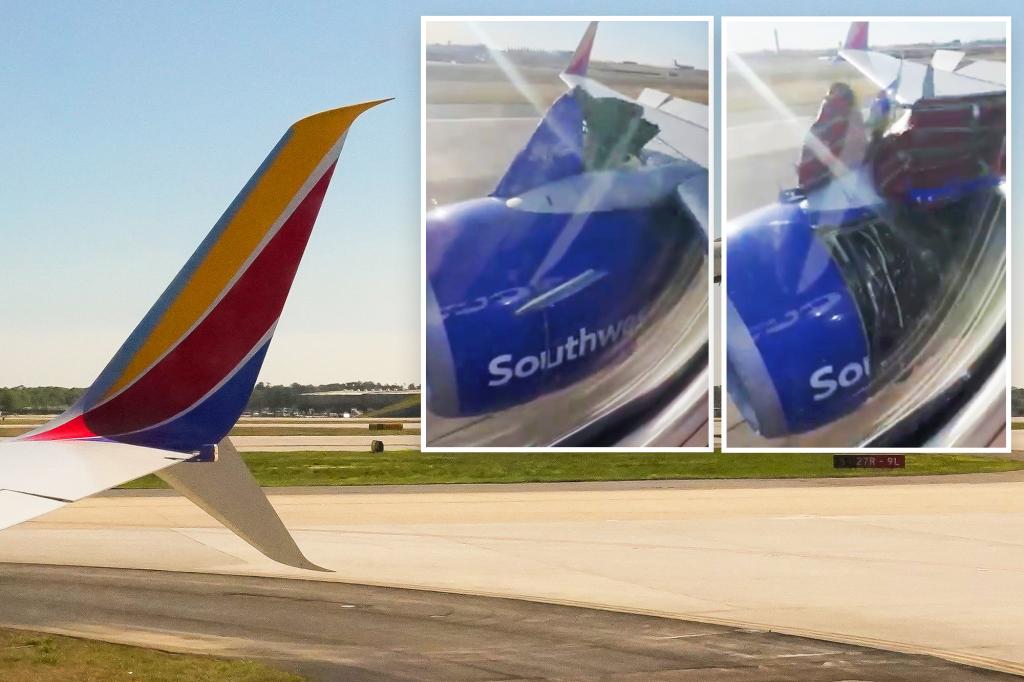The content discusses a terrifying incident involving a Southwest Airlines flight that had to declare an emergency and return to Denver shortly after taking off with 143 people on board. The pilot of the Boeing 737-800 plane informed air traffic control that part of the engine cowling had detached and struck one of the flaps. The pilot then opted for a flaps-up landing procedure to safely bring the plane back to the airport. Despite the damage, the flight landed safely with no injuries to passengers or crew.
The cockpit audio recordings captured the tense moments as the pilot coordinated with air traffic control during the emergency situation. The pilot mentioned that the crew had noticed the flap rip off during takeoff, and they were facing structural damage to the aircraft. The challenge of landing with the flaps up and heavy gross weight led the pilot to request a change in the landing runway. Ultimately, the plane landed safely and was met by emergency vehicles to ensure the well-being of everyone on board.
The incident was attributed to a mechanical issue on the plane, which was manufactured in 2017. Southwest Airlines confirmed that the passengers would be transferred to another aircraft to continue their journey to Houston Hobby, albeit with a three-hour delay. The safety record of Boeing aircraft has come under scrutiny due to a series of incidents and safety concerns. The recent emergency landing of an Alaska Airlines Boeing 737 MAX 9 raised questions about the safety of these aircraft, leading to a criminal investigation and a lawsuit against Boeing and Alaska Airlines.
The Southwest Airlines incident highlights the importance of effective communication between pilots and air traffic control during emergencies to ensure the safety of everyone on board. The calm and professional response of the pilot in coordinating a safe return to the airport despite the structural damage to the aircraft demonstrated the importance of following emergency procedures. The incident serves as a reminder of the potential risks associated with air travel and the importance of continuous monitoring and maintenance of aircraft to prevent such incidents in the future.
The Federal Aviation Administration’s confirmation of the detached engine cowling hitting a flap underscores the need for thorough inspections and maintenance checks to prevent such incidents in the future. The successful outcome of the emergency landing despite the mechanical issue showcases the skill and training of the flight crew in handling unexpected situations. The incident also highlights the collaboration between different stakeholders, including airlines, aircraft manufacturers, and regulatory authorities, to ensure the safety of air travel for passengers and crew members. The lessons learned from this incident can inform future safety protocols and procedures to prevent similar occurrences and enhance the overall safety of air travel.


